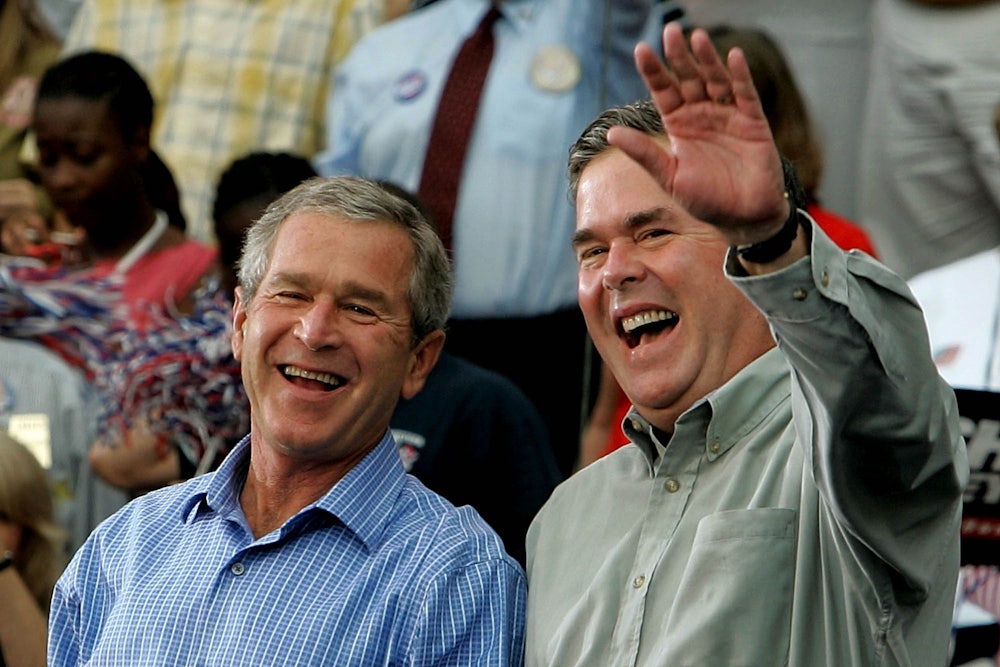That seems to be the gist of this post by Jim Geraghty at National Review, which holds that, whatever you might think of Bush’s policies, at least they were big and bold:
[T]he Bush-era approaches to terrorism—invading Afghanistan and toppling the Taliban, enacting the Patriot Act, setting up the prison at Guantanamo Bay, invading Iraq, waterboarding, black sites, extraordinary rendition—were sweeping, controversial … attempted game-changers. We can argue the effectiveness of these choices, but they were big moves, designed to disrupt those who wanted to kill us in a big way.
Obama’s approach, in contrast, “is small-ball, incremental, risk-averse,” which is “less controversial.” He concludes, “The problem is that when it fails, a hundred or so people die in the streets and theatrical stages get covered with blood.” Never mind that Europe was victim to similarly devastating terror attacks—London in 2005, Madrid in 2004—during the Bush era. If we took up Geraghty’s proposal to argue the effectiveness of Bush’s choices—which would seem to be the most important part of this discussion—wouldn’t we have to conclude that bigger isn’t better?
Or has the GOP now come around to the conviction that Bush’s foreign policy was, more or less, a success?
